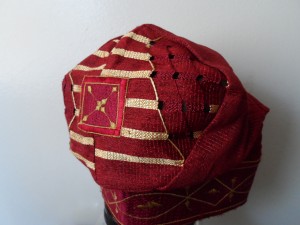Ọ̀rọ̀ Yorùbá ní “Ẹni tó Lórí kò ní Fìlà, Ẹni tó ní Fìlà kò Lórí”.
Tani eni “Ẹni tó Lórí ti kò ní Fila”? Enití gbogbo àyè wà fún lati ṣe nkan nla bi ka kọ́ ẹ̀kọ́ ìjìnlẹ̀ lati pèsè àyè à́ti ohun améyédẹrùn fún ìlú àti ará ìlú tí kò ló àyè yi.
Tani “Ẹni tí ó ni Fìlà tí kò Lórí”? Eni tí ìlú tàbí òbí ti pèsè àyè àti gbogbo ohun améyédẹrùn fún láti lè kọ́ ẹ̀kọ́ ìjìnlẹ̀ ṣùgbọ́n tó kọ̀ láti kọ ẹ̀kọ́ tàbi kó kọ́ iṣẹ́ ọwọ..
Kò sí ẹni tó le ni fìlà lai lórí, nítorí Ọlọrun dá Orí fún gbogbo ẹ̀dá alàyè, ṣùgbọ́n ènìà lè̀ lóri, kó má ni fìlà tí ó jẹ́ àtọwọ́dá ọmọ ènìà. Nítorí ìdí èyi, “Ẹni tó lórí yẹ kó ní Fìlà”, nípa lí lo orí lati pèsè àyè àti ohun amáyéderùn. Fún àpẹrẹ, ai lo orí lati pèse ohun améyédẹrùn ló fa sún kẹrẹ fà kẹrẹ ọkọ̀ ni ìlú Èkó nítorí bi Èkó bá lo ọkọ ojú omi, ọkọ̀ Ojúirin pẹ̀lú ọkọ̀ Orí ilẹ̀ lati kó ènìà àti ẹru lati ibìkan dé ibìkejì, sún kẹrẹ fà kẹrẹ ọkọ̀ á dín kù gidigidi àti wípé a dín ìyà àti àsìkò ti àwọn èrò nlo lójú ọ̀nà lójojúmọ́ kù.
ENGLISH TRANSLATION
Yoruba adage that said “The One who has a Head has no Cap, the One who has a Cap has no Head”.
“Who can be described as having a head without a Cap”? Anyone that has failed to utilize the opportunity available to him/her and the community.
“Who can be described as having a cap without a head”? This is the one who has no opportunity, despite his/her potentials to become responsible to him/herself and for the Society by refusing to acquire education or skill.
In the true sense, “No one can have a Cap without a Head”, because God created every living thing with a “Head”, but “One can have a Head without a Cap”, because Cap is manmade. As a result, “Anyone with a Head should have a Cap” by using the Head to create the Cap, which in this case is the opportunity and the infrastructure. For example, most often not using the Head to create the infrastructure is the bane of heavy traffic gridlock in Lagos because if Boats are used for Sea/Water Transportation as well as Train and Vehicular Transportation, this would reduce the unnecessary daily loss of time and the suffering of the commuters.
Originally posted 2013-05-24 22:46:31. Republished by Blog Post Promoter



